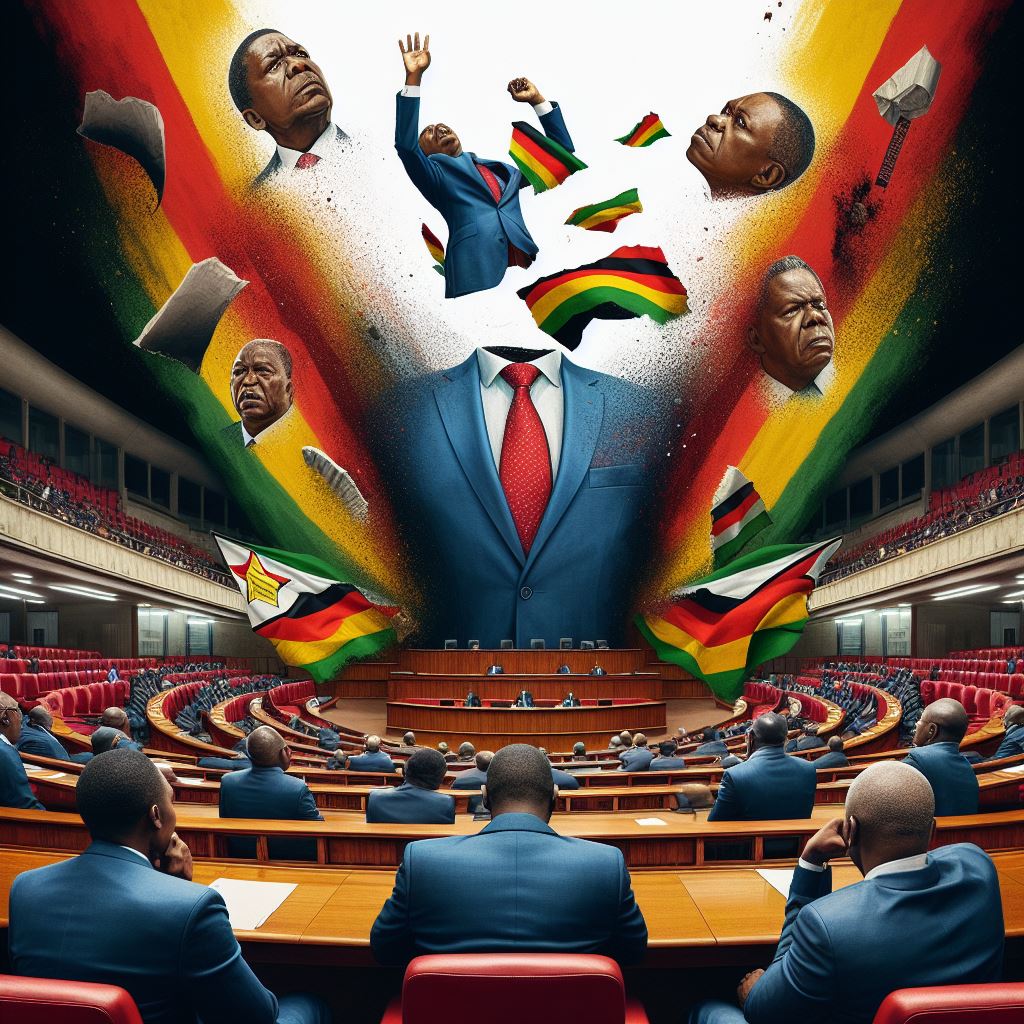There were always signs that the opposition, led by Nelson Chamisa, was going to implode soon after the August 2023 general elections. These fears were based on its internal polls to elect representatives, but no one had foreseen anyone resigning from parliament.
For the first time in post-independence Zimbabwe, MPs resigned from parliament in solidarity with their haunted leader. These two were MPs from the capital, Harare: Rusty Markham and lawyer Fadzai Mahere. They wrote their letters of resignation and were duly out of the august house.
The duo’s resignation from parliament was triggered by Chamisa dropping a bombshell announcement in January when he quit the main opposition Citizens Coalition for Change (CCC).
Chamisa resigned, citing party infiltration, state intervention in in-house CCC matters, and the courts taking partisan positions in judging the CCC’s internal squabbles.
The battle lines were drawn when Sengezo Tshabangu, barely a month after the elections, recalled 9 MPs and three mayors, arguing that they had ceased to be party members in terms of the national constitution.
Tshabangu said he was the interim secretary general of the CCC in his letter to parliament.
Markham and Mahere, after what they termed extensive consultations with their constituencies, resigned, saying they stood in solidarity with their leader, Chamisa, despite the leader not having made an indication of what his next political move was.
It matters little that the two were arguably the most vibrant opposition MPs in the Tenth Parliament. They had their questions every Wednesday and knew their stuff in their portfolio committees.
In simple terms, they were the standard measure of what an opposition MP should be.
This week, the electoral body, the Zimbabwe Electoral Commission (ZEC) nomination court, sat. Markham and Mahere did not seek reelection, nor did the CCC field any candidates.
In short, the ruling party has been given a free run in the capital’s two seats. The opposition has conceded ground.
For a start, it was imprudent for the duo to resign from their elected public offices. The opposition had to sort out its mess without stabilising the operations of parliament. Zanu PF has to be held accountable for its decisions, even with the opposition having only five seats.
Time and again, it has been proven that it’s not about the numbers the opposition has in parliament, but the substance of its representatives. It is in this regard that the opposition MPs missed their fawning for the leader.
Markham in the Ninth Parliament had proven an able leader. He asked pertinent questions about the government’s Command Agriculture Program.
Markham was a thorn in the flesh for the ruling party in the two committees he sat in – the Public Accounts Committee and the Agriculture and Lands Committee. He researched and had the spine to ask poignant questions.
It was a welcome development when Mahere was elected into parliament. She is an advocate and a good social activist. Has the right temperament and connections. Mahere was a member of the Parliamentary Legal committee and chaired the Higher and Tertiary Education portfolio committee. This gave her a vantage position to shape the Bills that came to parliament and the advantage to shape the tertiary education sector. But alas, all is lost for trying to prove loyalty to man whose plan is still a secret, that is if he has one.
The opposition is now in paralysis. No one knows how they will regroup with another election only due in 2028. However, President Emmerson Mnangagwa’s acolytes have started talking about a third term or extending his term by two years to 2030.
So far, there has been no coherent response from the opposition on the matter. There have been no national consultations on their programme of action going forward.
There are some take-home lessons for the opposition from this debacle. A party needs a recognized membership register and structures.
A movement based on the charismatic nature of its leader is not enduring, and interventions against fatigue and apathy have to be considered immediately. The opposition in its various forms has always been so close to taking state power but has always fallen short for the past 25 years.
This calls for an organic opposition political party. A party well grounded in an ideology and seizing the moment to deal with matters decisively and differently in areas where they have control, like local authorities.
This is not farfetched as examples of the Western Cape and Cape Town in South Africa have shown. This is a province and city that is controlled by the opposition Democratic Alliance.
Some urgent action is needed in the opposition to rescue the malaise and start getting ready for 2028 general elections. Otherwise, further lethargy will point to the demise of the opposition for the next generation, since Zanu PF is re-energising and renewing itself with each passing election.
Cover Image Generated with AI ∙ April 17, 2024 at 10:54 AM



